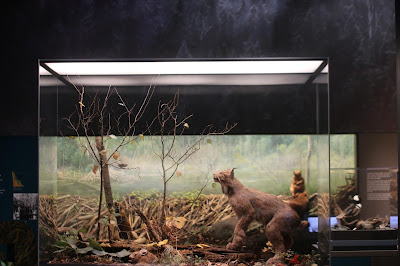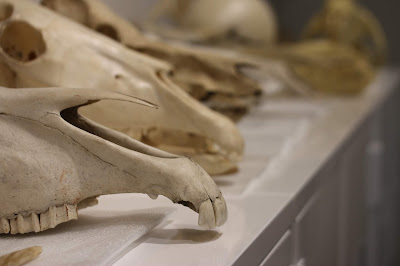Monday, December 31, 2018
2018: some book recommendations
For the past several years, I've become acutely aware of this book hoarding "issue" I have. As in, I don't really want to move again. So I got into a terrible habit, which was to pull books from my shelves that I suspected I would find okay. These are the ones that have taken priority in my reading life; at this point, I have a thousand dollars in credit at the local bookstore from bringing them in.
Something, clearly, is not working. Midway through the year, I shifted, put those books I'd winnowed under the bed in those giant clothing storage boxes, and they come out one-at-a-time, so my reading mental space isn't clouded by the terrifyingly wobbly stacks, and I'm more likely to pick a book from the permanent shelves, resulting in a much more satisfying end-of-the-year list of books I'd recommend to any reader.
I look at this list and get giddy remembering reading them. There are plenty of good things to reflect on in 2018, but the sheer stomach-drop pleasure of reading a book by someone so masterful with language and story is hard to compare to anything else.
Poetry:
Silver Road: Maps, Essays and Calligraphies by Kazim Ali
From the Inside Quietly by Eloisa Amezcua
Black Box by Erin Belieu
One Above & One Below by Erin Belieu
Let's Not Live on Earth by Sarah Blake
Next by Lucille Clifton
My Lover's Discourse by BK Fischer
Some Ether by Nick Flynn
Nanopedia by Charles Jensen
Hunger by Judy Jordan
Course by Athena Kildegaard
The Explosive Expert's Wife by Shara Lessley
Bright Dead Things by Ada Limon
The Carrying by Ada Limon
Whereas by Layli LongSoldier
Coal by Audre Lorde
Bluets by Maggie Nelson (re-read)
Indecency by Justin Philips Reed
Wilder by Claire Wahmanholm
Nonfiction:
My Own Devices: True Stories from the Road on Music Science, and Senseless Love by Dessa
We Are Never Meeting in Real Life by Samantha Irby
16 Pills by Carley Moore
Riverwalking: Reflections on Moving Water by Kathleen Dean Moore
The Bright Hour: A Memoir of Living and Dying by Nina Riggs
Night by Elie Wiesel (re-read)
Fiction:
Krik? Krak! by Edwidge Danticat (re-read)
Less by Andrew Sean Greer
Homegoing by Yaa Gyasi
Exit West by Mohsin Hamid
Dept. of Speculation by Jenny Offill
The Perfect Nanny by Leila Slimani
The Underground Railroad by Colson Whitehead
Drama:
The Crucible by Arthur Miller (re-read; taught for the first time)
Young Adult / Middle Grade:
The Absolutely True Diary of a Part-Time Indian by Sherman Alexie
Wild Robot by Peter Brown (re-read with my daughter)
The Birchbark House by Louise Erdrich
Turtle in Paradise by Jennifer L. Holm
The Book of Elsewhere: The Shadows by Jacqueline West
Saturday, December 29, 2018
scenes from duluth: we arrive
My husband offered a choice: a gift for the holidays or a trip. This was not a hard decision, even as he showed me an enormous loom he found for sale, all the wires and enormous heddles terrifying (and intriguing!) me. We went to Duluth, where I took a few photographs of the lake in all its early winter mysteriousness from the window. The trip was a much-needed reset of my sense of place, the geography of my manuscript being so critical, and knowing what various ecosystems do as winter settles in a big part of that. I will post a few sequences of photographs I took as I begin to think of how winter can be so beautiful and destructive at once. I often think of those who lose family members in winter car accidents or snowmobile mishaps (or, as I lost a student, snowboarding accidents): here is this weather that will change in six months time to circumstances very different, the triggering something completely missing from the scenario, and thus, the ghost-self passes over the landscape, safe, forgetting what it is like to spin desperately out of control and into oblivion.
I've begun writing questions I have for this manuscript in the margins of my two writing notebooks: there is one I am using for the hard research that comes from scientific books, and there is the creative notebook that is developed while reading other books of poetry (thus, a kind of reading journal), but also whatever writing I generate as a result of that or the other. There are so many things I want to know about water cycles in winter, about denning and oxygen, about glaciers and weather and currents. I love how curious this work is making me. I turned to my husband on our drive home and said, I feel overwhelmed by all of these questions I have. And he said to me, Now you know a little bit what it's like to be our daughter. I love this connection.
Thursday, December 27, 2018
tonight, i stood in the snow--
And I listened. Snow at night is something else. Our chickens are in their coop, and our aging golden retriever hobbled through the snow, probably grateful for the grip, so I was far from being alone, the lights from the kitchen leaning out, my children's shrieking laughter wafting out from the barely-shut patio door. I'm trying to get the sounds of it. There's so much to it: the shushing, the creaking, the rubbing of wood on wood, the popping as the crystals break. And so much of it, too, still silence. Thinking to this manuscript: what would it sound like if it seemed to never stop? How would that sound change over time? Over days, weeks? Can the sound ever be flushed once it does finally stop?
When we moved into the converted church along the river where my husband went to gradate school, everyone gaped at how close the train ran. I thought it would torture my sleep, but the opposite occurred: it lulled. And I missed it. Eventually, we moved back to a house not far from the tracks again and our visitors struggle with it, but to us, it's a part of the night's soundscape.
Snow's sounds change the more you have too: the weight of it, the pressure, the ache of it.
For now, I'm looking closely. Watching and listening.
Saturday, December 22, 2018
bell: with research assistants
After a solo trip, my children, wriggling and sweet with curiosity, begged to go to the Bell, and it wasn't hard for me to say yes. It's the first day of winter break, and I have much to reflect on by way of reading (not just scientific research, but also deep dives into poetry collections), but before I do that, here's another photographic reflection on our walk-through this day-after-solstice. I noticed new things (above, bezoar--a cow hairball; further in, just below the polar bear paws is the start of an earth core, a display I know I'll need to return to and meditate on) but the real pleasure was watching my two littles experience the exhibits for the first time. (For the record, their favorite is an interactive mating dance done with a sandhill crane; my son kept doing it again and again and again. Bow, flap, leap!) I love this place.
Friday, December 21, 2018
winter solstice 2018
To all on the longest night of the year: so much love, and bonfire-lit hope, so much to new writing and new making. We've almost turned over into the new year; I'm looking at this winter as a time of creation and generation. This summer, I will head to Tennessee for my first writing residency, where I hope I'll be able to lay out so many new poems and see how it could all fall together. Today, too, is the last day of teaching for 2018, and I have a lot of gratitude in my heart for the journey I'm on, where I've ended up, and where I'm headed.
Sunday, December 16, 2018
a walk through the bell
Because the sequence of poems I am working on is so steeped in the natural world, and because every trip I make after this might involve the youngers in our family, and because it is nearly winter break and my own students are as ready for it as I am, my husband gifted me the morning and afternoon to myself, so I went to the Twin Cities and purchased a household membership to the Bell Museum.
The manuscript I'm interested in developing began as a way of combining the passions of my family: my husband and his roots in stream ecology and the mapmaking world of GIS; my daughter's intense brilliance when it comes to the lives of animals, their habitats, their behaviors, and other specificities; and my son, whose interest in being a helper has led me to imagine a family modeled after our own in which they are experiencing catastrophic events of climate change, where the father goes in search of mythic ways into the earth (see: animal habitats in winter) as a way to ride out a storm. I wanted to think of a way, instead of searching outside of our planet (see: explorations of Mars) for rescue from our own destruction, we go into the womb of the planet we live on. Why would we do that, if climate change is warming, and going further into the Earth is also warmer and warmer?
I can see I'm already spilling too much; I'll leave it at that for now, especially as I am in the embryonic stages of developing this book. I've got a handful of poems already, ones based on this visit, ones based on the glimmers of ideas, ones that come from watching a documentary with my daughter, and memories I have of winters in Minnesota. It's a new foray, thinking speculatively about very real scientific issues, especially when my own writing tends to be so experience-based, but this will be too: walks in the woods, passionate research, the roots in my own family of four, but then so many what if questions (which I live with every day from that girl of mine) pumping around the action of the book.
For now, I'll share the photographs I took at the museum, where answers to so many of my questions as I write and think this manuscript out, exist. I didn't want this to be a fact collecting experience though; I have many more visits in my future to do this. I didn't even want to answer any of my initial questions. I wanted this to be a first tour of a place I know I'll return to, filling in pieces: spending time with the mural that is the image of the layers of earth and rock beneath the Twin Cities, spending time with the Jim Brandenburg film on seasonal Minnesota, looking at the places where our biomes meet and considering how the rivers move out of our state in varying directions. I wanted this to be an initial visit of wonder before I got to the real work of finding answers.
I had two really fantastic conversations with two people working in the museum--one an undergraduate employee who talked to me about mammoths and muskoxes and the other a volunteer who told me some really amazing things about Glacial Lake Aggasiz and the moraines and ice dams breaking and I just felt so silly and giddy and a little weepy in amazement at all that was available for my brain and my kids', who also feel this hungry curiosity about the natural world.
Subscribe to:
Posts (Atom)































































